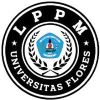PENGEMBANGAN LEMBAR KERJA PESERTA DIDIK (LKPD) BERBASIS PROBLEM BASED LEARNING DALAM PEMBELAJARAN MATEMATIKA KELAS IV SEKOLAH DASAR
DOI:
https://doi.org/10.37478/jpm.v3i1.1313Abstract
This study was conducted to determine the development and feasibility of learning media student worksheets (LKPD) based on Problem Based Learning in learning mathematics for grade IV elementary schools. The research method used in this study is research and development (Research and Development) which uses four stages of the Borg and Gall research and development model, namely: 1) research and information collecting, 2) Planning, 3) develop preliminary form a product, 4) preliminary field testing 5) main product revision, 6) main field testing 7) operational product revision 8) operational field testing, 9) final product revision, 10) desimination. The result of this research and development is a problem based learning LKPD product in the fourth grade elementary school mathematics learning. The feasibility level based on the results of the percentage assessment of material experts, learning media experts, and linguists respectively got 90.47%, 82.28%, and 73.3% with the criteria of "very feasible". Furthermore, the response of students to the product when it was tested in the main field testing stage of the LKPD problem based product also did not require improvement and got a percentage of 95.17% with the criteria of "very good". Based on the results of interviews with fourth grade teachers, teachers are interested in using problem-based learning LKPD products in mathematics learning activities in the classroom. Based on this, it can be concluded that problem-based learning LKPD is appropriate to be used as one of the mathematics teaching materials in geometry learning.
Downloads
Keywords:
Student worksheets, Problem Based Learning, Geometry, Teaching materialsReferences
Andrayani, N. N. (2015). Pengaruh Strategi Problem Solving menurut Wankat dan Oreovicz terhadap Kemampuan Pemahaman Konsep Matematis Dan Self-Regulaed Learning Siswa. UPI Eduhumaniora: Jurnal Pendidikan Dasar, 7(2), 173–185. https://doi.org/http://dx.doi.org/10.17509/eh.v7i2.2708
Caswita, C., & Bharata, H. (2019). Pengembangan Lembar Kerja Peserta Didik Berbasis Problem Based Learning untuk Meningkatkan Kemampuan Penalaran Matematika. Desimal: Jurnal Matematika, 2(2), 141-146. http://ejournal.radenintan.ac.id/index.php/desimal/index
Fathurohman, I., & Ulya, H. (2021). Analisis Keterampilan Membaca Permulaan dan Berhitung pada Siswa Sekolah Dasar. WASIS: Jurnal Ilmiah Pendidikan, 2(2), 79-87. https://doi.org/10.24176/wasis.v2i2.6163
Fauzi, I., & Arisetyawan, A. (2020). Analisis Kesulitan Belajar Siswa pada Materi Geometri Di Sekolah Dasar. Kreano, Jurnal Matematika Kreatif-Inovatif, 11(1), 27–35. https://doi.org/10.15294/kreano.v11i1.20726
Fitrianti, M. (2021). Peningkatan Hasil Belajar Dalam Pembelajaran Matematika Melalui Kooperatif Tipe Number Head Together (NHT) Pada Siswa Sekolah Dasar. Tadulako Educational Research Journal, 1(1), 32-40. https://jurnal.fkip.untad.ac.id/index.php/terj/article/view/874
Hanafi. (2017). Konsep Penelitian R & D Dalam Bidang Pendidikan. Saintifika Islamica: Jurnal Kajian Keislaman, 4(2), 129–150. http://jurnal.uinbanten.ac.id/index.php/saintifikaislamica/article/view/1204
Handayani, N. (2021). Model Pembelajaran Kooperatif Tipe Snowball Throwing Tingkatkan Hasil Belajar Pecahan pada Siswa Kelas V SDN Urangagung Sidoarjo. Jurnal Pendidikan Tambusai, 5(1), 615-619. https://jptam.org/index.php/jptam/article/view/993
Indarwati, D. dkk. (2014). Peningkatan Kemampuan Pemecahan Masalah Matematika Melalui Penerapan Problem Based Learning Untuk Siswa Kelas V SD. Jurnal Satya Widya, 30(1), 17–27. https://ejournal.uksw.edu/satyawidya/article/view/107
Komalasari, K. (2017). Pembelajaran Kontekstual. Bandung: PT Refika Aditama. Google Scholar
Lestari, I. (2015). Pengaruh waktu belajar dan minat belajar terhadap hasil belajar matematika. Formatif: Jurnal Ilmiah Pendidikan MIPA, 3(2). http://dx.doi.org/10.30998/formatif.v3i2.118
Mala, N., Pamungkas, A. S., & Alamsyah, T. P. (2020). Pengembangan Lembar Kerja Peserta Didik Matematika Berorientasi Higher Order Thinking Skills Di Sekolah Dasar. SJME (Supremum Journal of Mathematics Education), 4(2), 106–123. https://journal.unsika.ac.id/index.php/supremum/article/view/3406
Melindawati, S. (2016). Pengembangan Bahan Ajar Tematik Terpadu dengan Model Problem Based Learning di Kelas IV Sekolah Dasar. ESJ: Elementary School Journal PGSD FIP UNIMED, 5(1), 1–12. https://jurnal.unimed.ac.id/2012/index.php/elementary/article/view/3974
OECD. (2014). PISA 2012 Results in Focus: What 15-year-olds know and what they can do with what they know. 1–42. https://www.voced.edu.au/content/ngv:59795
Perdana, R., & Suswandari, M. (2021). Literasi numerasi dalam pembelajaran tematik siswa kelas atas sekolah dasar. Absis: Mathematics Education Journal, 3(1), 9-15. https://doi.org/10.32585/absis.v3i1.1385
Pradita, N. E., & Wangid, M. N. (2017). Pengembangan LKPD Tematik-Integratif Berbasis Karakter pada Peserta Didik Sekolah Dasar. Jurnal Pendidikan Karakter UNY, 7(1), 56–70. https://journal.uny.ac.id/index.php/jpka/article/view/15500
Rahmadani, R., & Taufina, T. (2020). Pengembangan Multimedia Interaktif Berbasis Model Problem Based Learning (PBL) Bagi Siswa Sekolah Dasar. Jurnal Basicedu, 4(4), 938–946. https://doi.org/10.31004/basicedu.v4i4.465
Septian, R., Irianto, S., & Andriani, A. (2019). Pengembangan Lembar Kerja Peserta Didik (LKPD) Matematika Berbasis Model Realistic Mathematics Education. Jurnal Educatio FKIP UNMA, 5(1), 59–67. https://ejournal.unma.ac.id/index.php/educatio/article/view/56
Sukmadinata, N.S. (2011). Metode Penelitian Pendidikan. Bandung: Remaja Rosadakarya. Google Scholar
Suprihatiningrum, J. (2017). Strategi Pembelajaran Teori dan Aplikasi. Jogjakarta: AR-RUZZ MEDIA. Google Scholar
Suputra, K. Y., Sujana, I. W., & Darmawati, I. G. A. P. S. (2021). Penerapan Model Problem Based Learning Berbantuan GeoGebra Meningkatkan Hasil Belajar Matematika. Journal of Education Action Research, 5(3), 423-431. http://dx.doi.org/10.23887/jear.v5i3.36898
Suryadi, D. (2010). Menciptakan proses belajar aktif: Kajian dari sudut pandang teori belajar dan teori didaktik. Bandung: Universitas Pendidikan Indonesia. Google Scholar
Downloads
Published
How to Cite
Issue
Section
License
Copyright (c) 2022 Septiana Andeswari, Dudung Amir Sholeh, Linda Zakiyah

This work is licensed under a Creative Commons Attribution-ShareAlike 4.0 International License.













